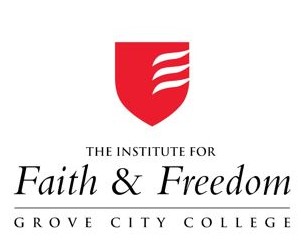Next GOP Nominee: Conservative Record, Moderate Tone

With New Jersey Gov. Chris Christie enmeshed in scandal, the race for the 2016 Republican presidential nomination suddenly looks wide open. But before the GOP coalesces around a new front-runner, they need to drop dangerous delusions about what went wrong in 2008 and 2012.
For Republicans, that means abandoning the groundless conclusion that they lost twice to Barack Obama because they nominated the wrong candidates — two “mushy moderates” who couldn’t excite the base and led millions of frustrated conservatives to stay home. No political party can hope for future victories unless it comes to terms with the real reasons for past defeats.
If John McCain and Mitt Romney counted as terrible choices, which of their intraparty rivals would have fared better?
In 2008, McCain’s chief rival for the nomination was….Mitt Romney, who carried only one important primary state (his native ground of Michigan) in a lavishly expensive primary campaign that drew less than half McCain’s vote total in primaries and caucuses. McCain, meanwhile, swept primary contests in 31 states, including every one of the crucial Electoral College battlegrounds – Florida, Virginia, Ohio, Indiana, Pennsylvania, North Carolina, Wisconsin, Missouri, New Hampshire and more. If Romney or Huckabee couldn’t win primaries in these decisive swing states why is it logical to assume they would have fared better there in the general election?
In 2012, Romney won the most votes in 37 state primaries or caucuses, including 10 of the 11 most populous states. If Rick Santorum, Newt Gingrich, Michele Bachmann, Rick Perry, Herman Cain and Ron Paul failed to compete successfully in primaries where right-leaning voters predominate, then how would they magically manage to build a majority of voters in the November election, where voters are far more moderate and diverse?
Exit polls prove that self-described conservatives never deserted the Romney-Ryan or McCain-Palin tickets, actually turning out in record numbers. In the long history of modern exit polling, going all the way back to 1976, no contest ever produced a higher percentage of voters (35%) who identified themselves as “conservative” than did the Romney-Obama battle in 2012. McCain’s 2008 challenge wasn’t far behind, with 34%.
Moreover, both McCain and Romney captured even bigger margins among conservatives than did Ronald Reagan in 1980, when he crushed Jimmy Carter.
How, then, did Reagan win huge landslides in both his races as nominee while the two most recent GOP contenders fell short?
The answer is that Reagan won because he did better among moderates, not conservatives. In fact, no other Republican has ever won clear pluralities in the decisive moderate bloc; Reagan did it twice. His conservative bona fides allowed him to run campaigns with a distinctly moderate tone without risking charges of treason; he had a free hand to select an establishment running mate (George H.W. Bush) while reassuring the public that he was a cheerful pragmatist, not an angry ideologue.
McCain and Romney, on the other hand, came into their presidential campaigns with histories of challenging conservative orthodoxy and so felt the need to protect their right flank by claiming to be “severely conservative” (in Romney’s unfortunate phrase). Running combative campaigns with no explicit reach toward the center produced an overwhelming win among conservatives but a catastrophic loss with moderates, who, in every presidential contest, always represent the largest single ideological segment of the electorate.
Republican primary voters selected McCain and Romney not because they were the most conservative, but because they seemed conservative enough and offered the best shot at unifying the party.
Republicans will likely make similar choices in 2016, picking a nominee who can bring together all factions rather than delivering definitive dominance to one faction over all others. On that basis, Rand Paul is too closely identified with the party’s libertarian wing, Ted Cruz with the Tea Party and Chris Christie with Northeastern post-partisanship. Instead of one of the electrifying but polarizing figures in intraparty squabbles, the GOP will probably settle on a mainstream candidate with an unequivocally conservative record but a non-threatening approach to persuasion. Wisconsin Gov. Scott Walker is one such possibility, or his fellow cheesehead Paul Ryan, or former Florida governor Jeb Bush, or waiting-in-the-wings governors such as Indiana’s Mike Pence or New Mexico’s Susana Martinez.
Such a selection wouldn’t require ditching conservative principles; the GOP will remain unmistakably right of center. But that conservative substance must combine with a moderate tone if the GOP is to provide a more welcoming home for Hispanics, single women, young people and others currently alienated from the party’s messages and messengers.
With the choices available, GOP primary voters picked the right nominees in 2008 and 2012, but two years from now they need a contender whose deep conservative roots allow him to spend less time constantly calming right-wing activists and more time reaching out to new voting blocs. Such a nominee could help true believer conservatives become participants in the project of persuasion, not its target.
A version of this column appeared first in USA TODAY.




















